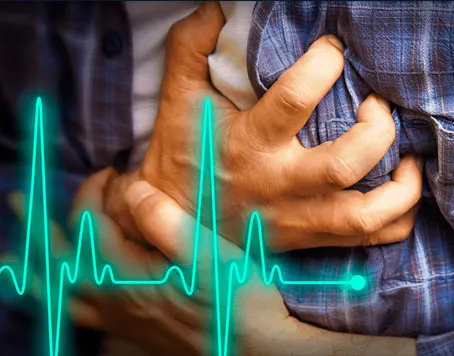Myocardial Infarction
Myocardial infarction, commonly known as a heart attack, is the irreversible necrosis of heart muscle secondary to prolonged ischemia. This usually results from an imbalance in oxygen supply and demand, which is most often caused by plaque rupture with thrombus formation in a coronary vessel, resulting in an acute reduction of blood supply to a portion of the myocardium or muscles death. The risk factors for atherosclerosis and heart attack include elevated cholesterol levels, increased blood pressure, tobacco use, diabetes, male gender, and a family history of heart attacks at an early age.
Types of Myocardial Infarction (MI) : - MI is of five types follows as : -

Currently available surgical or endovascular revascularization like angioplasty and coronary artery bypass graft (CABG) and drug based method are available treatment for Myocardial Infarction and coronary arterial disease.
But the stem cells transplant with angioplasty and CABG induces neo-myogenesis and neo-vascularization. Because neo-myogenesis or muscle regeneration is very difficult task in heart attack patient by its self even after angioplasty and CABG.

